UK unions: Öcalan's message is a call for dialogue
The Freedom for Öcalan UK Trade Union Campaign said it stands in solidarity with the Kurdish people and demands an end to Turkey’s attack on local democracy.
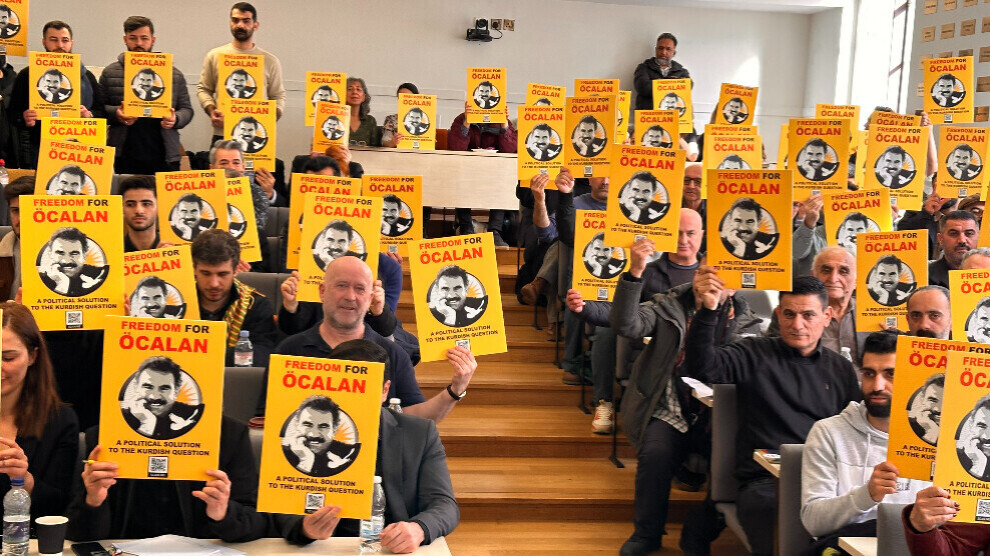
ANF
NEWS DESK
Saturday, 9 November 2024
The Freedom for Öcalan UK Trade Union Campaign issued a statement in solidarity with the Kurdish people at a time when they once again have to fight against the appointment of trustees to the municipalities democratically and legally won by the DEM Party.
The UK trade unions said in their statement that they "have a long-standing history of standing in solidarity with oppressed peoples worldwide and advocating for justice. For years, the movement has been actively involved in the Freedom for Öcalan campaign, launched in 2016 by UNITE and GMB, and now supported by 14 major trade unions and the Trade Unions Congress (TUC). Through this campaign, we have consistently called for the release of Abdullah Öcalan and for a peaceful, democratic resolution to the Kurdish issue."
The statement added: "The Turkish government continues a systematic policy of repression on Kurdish communities and their democratic institutions. Recent actions, including the forced removal of elected Kurdish mayors and the imposition of trustees, are blatant attempts to suppress democratic rights and undermine local governance.
In the past week, the Turkish government replaced elected mayors in Mardin, Batman, and Halfeti with state-appointed trustees. These actions are part of a broader pattern of systematically disregarding local democracy and imposing authoritarian control. The removal of these officials — many elected with overwhelming support — highlights Turkey's continued efforts to repress the Kurdish political movement."
The statement continued: "While Turkish leaders, including President Erdoğan and his ally Devlet Bahçeli, have recently suggested a potential openness to dialogue to resolve the Kurdish issue, these overtures are contradicted by Turkish military operations in Rojava (Northern Syria), which continue to target innocent civilians and the broader infrastructure network providing resources to the local peoples. Turkish military activities reveal a stark contradiction between the state’s rhetorical commitment to peace and its actions, which undermine any hopes for genuine dialogue or a peaceful resolution.
However, one recent development offers a glimmer of hope. On 23 October, Abdullah Öcalan's nephew, Ömer Öcalan, visited him in prison — the first contact in years. During the visit, Öcalan delivered a clear message of readiness for dialogue, emphasising his commitment to resolving the Kurdish issue through legal and political frameworks. This message must not be ignored: Öcalan has consistently advocated for a peaceful resolution within Turkey's framework and is ready to play a key role in any such process."
The trade unions said that "Öcalan's message is a call for reason and dialogue, one that should be heeded by both Turkey and the international community. His insistence on a solution based on legal and political frameworks, rather than violence and military repression, offers hope to millions of Kurds in Turkey and beyond. Despite years of isolation, Öcalan remains committed to a peaceful resolution of the Kurdish issue," and added that "the Turkish government must demonstrate its commitment to dialogue by halting military aggression, ceasing the removal of elected officials, and respecting the democratic rights of the Kurdish people. The international community, including the United Kingdom, the European Union, and the United Nations, must support efforts to bring about a peaceful, democratic solution to the Kurdish issue in Turkey."
The Freedom for Ocalan UK Trade Union Campaign, demanded: "The immediate reinstatement of elected Kurdish mayors in Mardin, Batman, Halfeti, and other affected municipalities, and an end to the imposition of trustees that bypass the democratic will of the people; The immediate release of Abdullah Öcalan from isolation, allowing him to play a central role in any future peace process and contribute to negotiations to resolve the Kurdish issue; A cessation of Turkey’s military operations in Rojava and a halt to the violence against Kurdish-led forces and civilian populations in Syria; Respect for the democratic rights of the Kurdish people, both in Turkey and the broader region, including the right to elect their representatives and engage in peaceful political activities without fear of arrest or repression; International pressure on Turkey to engage in meaningful dialogue with Kurdish representatives and other political groups to find a peaceful, democratic, and sustainable solution to the Kurdish question."
PACE Rapporteur: I will apply for a meeting with Abdullah Öcalan
PACE Rapporteur Stefan Schennach, who visited Turkey last June, announced that he would apply for a meeting with Abdullah Öcalan during his second visit in January.
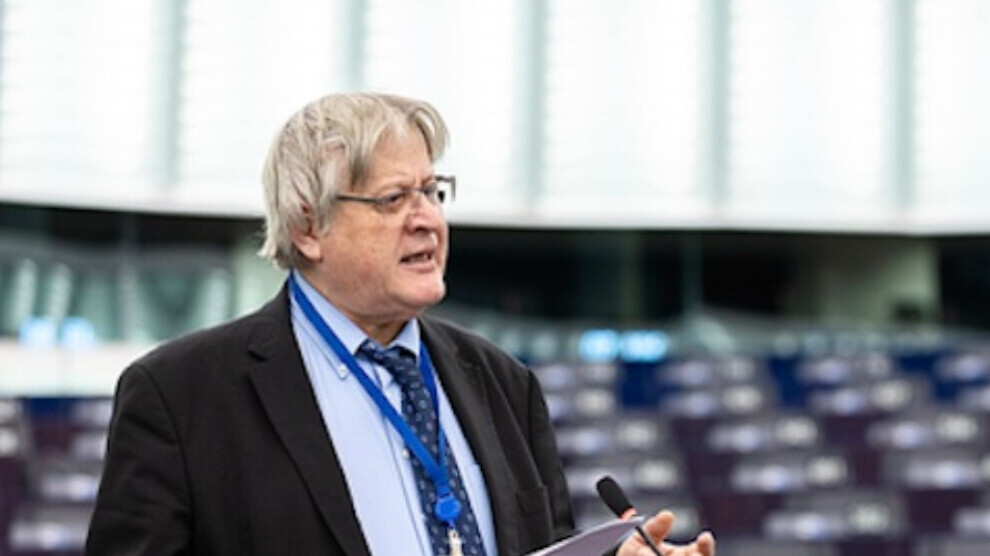
ANF
NEWS DESK
Sunday, 10 November 2024
Stefan Schennach, one of the co-rapporteurs of the Parliamentary Assembly of the Council of Europe (PACE) for the monitoring of Turkey’s obligations and commitments, announced his report on prisons in Turkey. The report on his visits to prisons between 11-14 June included numerous violations of rights. Schennach also drew attention to the isolation of Kurdish leader Abdullah Öcalan who is held in incommunicado detention in the İmralı Island Prison in Turkey.
Speaking to the Mesopotamia Agency, Schennach stated that isolation is a form of torture against human rights, adding, “I will apply to visit Abdullah Öcalan.” The PACE Rapporteur will pay another visit to Turkey in January.
Schennach also drew attention to the Turkish government’s usurpation of municipalities and said, “Elected mayors are elected mayors. The government has to accept democracy.”
Noting that Turkey does not implement the judgements of the ECtHR, Schennach stated that the initiatives for the implementation of these judgements will continue. He stated that the Council of Ministers also insisted on the implementation of the judgements.
Koldo Saenz: Freedom for Abdullah Öcalan is possible, let's expand the struggle!
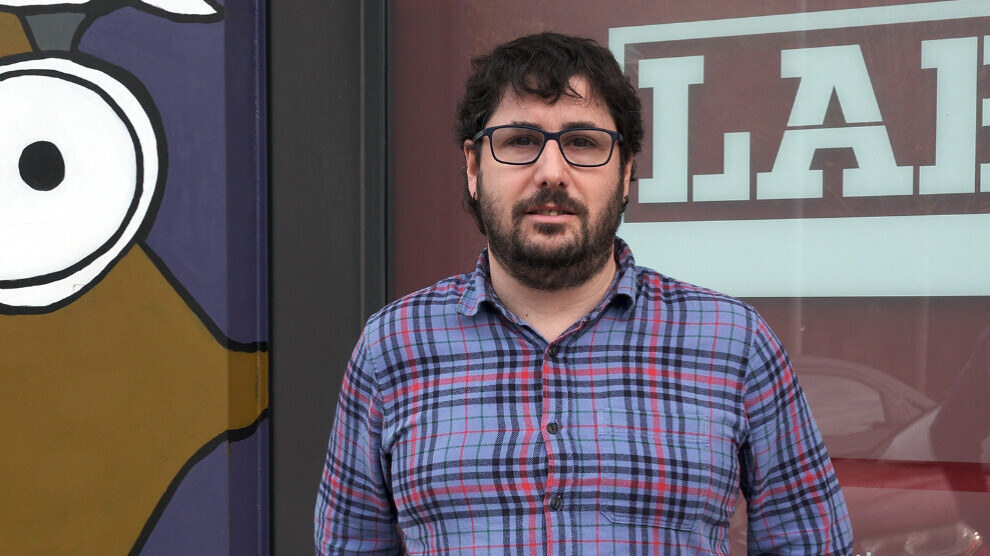
LAB International Relations Secretary Koldo Saenz De Benito underlined the impact of the global freedom campaign, and said: “Developments have shown us that Öcalan’s physical freedom is possible. We should expand the struggle."
SERKAN DEMİREL
NEWS DESK
Sunday, 10 November 2024
DEM Party Urfa MP Ömer Öcalan met with the Kurdish people's leader Abdullah Öcalan in Imrali on 23 October.
Öcalan told his nephew and DEM Party MP: "Isolation continues. If conditions are right, I have the theoretical and practical power to move this process from a ground of conflict and violence to a legal and political ground."
Koldo Saenz De Benito, Secretary of International Relations of the Basque Country Labour Union (LAB), one of the supporters of the global campaign "Freedom for Öcalan, Political Solution to the Kurdish Question", spoke to ANF about the meeting in Imrali as well as the next steps that the international campaign could take.
The LAB Trade Union recently announced its support for the global campaign advocating for the freedom of Kurdish leader Abdullah Öcalan. After 43 months of isolation, Öcalan was recently able to meet his nephew, Ömer Öcalan. How do you interpret the significance of this visit after such a prolonged period of isolation? What impact do you believe this could have on Öcalan himself, his supporters, and the broader Kurdish community?
I think that in this question there are different parameters for analyzing an event that has had a very great relevance.
On the one hand, there is the political fact that the Turkish authorities allowed the family to visit him after 43 months of total isolation, without anyone having any information about his situation and without even knowing whether he was alive. We must surely say that the campaign has achieved enough strength to force Turkey to take this step, and we should congratulate ourselves for that, because the efforts of those of us who have demanded Abdullah Öcalan's freedom produced results.
On the other hand, there is the human dimension of a person in an extreme situation who, after such a long period of time, has had the opportunity to see a loved one, and also, of course, for the Kurdish community who have seen that Öcalan is alive and well and that his political struggle has produced some results.
For those of us who know at first hand the experiences of political prisoners, we know the human and political importance for the prisoner of contact with his family, friends and community. Isolation tries to break all that, trying to break the prisoner by taking away what is most important in his life, which is family, friends, community and people. Undoubtedly, the visit by his nephew was an unimaginable personal joy and a reinforcement of his political convictions.
In his recent message to the public, Abdullah Öcalan emphasized that isolation conditions persist but expressed that, given the opportunity, he has both the theoretical and practical means to shift the process from a cycle of conflict and violence to a political and legal framework. How do you interpret Öcalan’s message? What could this shift mean for the Kurdish issue and for peace efforts in the region?
My interpretation is that his message goes in the direction already expressed above. I think he is trying to create the political conditions to move from a scenario of violence and war to a democratic scenario to seek a complete political and democratic resolution to the Kurdish issue. Saving distances, it is similar to the steps taken by the Basque pro-independence Left to seek a scenario of peace and democracy, taking ETA's armed violence out of the equation. I believe that Abudallah Öcalan is trying to move towards a democratic scenario, in which it will be only the Kurdish people who decide their political future in peace and democracy, and I also believe that there is nothing more democratic than that.
This reminds me of when the historic Palestinian leader Yasser Arafat addressed the United Nations, saying that he came with a rifle in one hand and an olive branch in the other hand. Drawing a parallel with that situation, from my humble position, I appeal to everyone not to let the olive branch fall.
Lately, the political climate in Turkey has seen renewed discussions about finding a political solution to the Kurdish issue. What are your thoughts on these discussions? Do you see them as a step forward, or do you believe more substantial actions are needed?
The mere fact that a discussion on a political resolution of the Kurdish question could be opened is positive, but unfortunately it is not enough. In my opinion, in order for such a process to reach a democratic scenario, there has to be a consensus between the parties in conflict, as well as the support and mediation of the international community. Peace in Kurdistan is a good thing for everyone, and although peace always has powerful enemies, it is necessary to convince the parties that peace is a win-win situation. That is why the international community cannot look the other way and has to explore political mechanisms with the aim of seeking peace with justice in Kurdistan, because that would undoubtedly be very good news for the region and the whole world.
In this sense, I believe that solidarity organisation must continue to push in this direction. We must continue to support the petition that Abdullah Öcalan has sent us, demanding that the international community does not waste this opportunity.
The global campaign for Öcalan’s freedom has undoubtedly played a significant role in facilitating this recent meeting after 43 months of silence. How important do you consider this campaign to be in the broader struggle for Öcalan’s release? Looking ahead, what further steps should be taken to ensure his freedom and support the larger Kurdish cause?
As I said at the beginning, I believe that the meeting that took place after 43 months of isolation would not have happened without the international pressure that we have exercised. There is no doubt that in order to move the positions of a power like Turkey it is necessary to accumulate a lot of strength. We achieved that and for that we have to be very happy. Unfortunately, however, nothing ended with this meeting, although I think something did start that day. I sincerely believe that on that day Turkey's impunity began to be broken and that this meeting was the beginning of a new phase in the struggle. That's why what happened should give us enough encouragement to continue believing that the freedom of Öcalan and Kurdistan is possible and achievable. This should be the challenge for the future, to continue to accumulate forces to press for the freedom of Abdullah Öcalan and for a scenario of negotiation and dialogue for a democratic resolution of the Kurdish issue.
Cemil Bayik: Health, security and free living conditions must be given to Öcalan
Cemil Bayik addressed the issue of how a solution to the Kurdish question can be achieved.
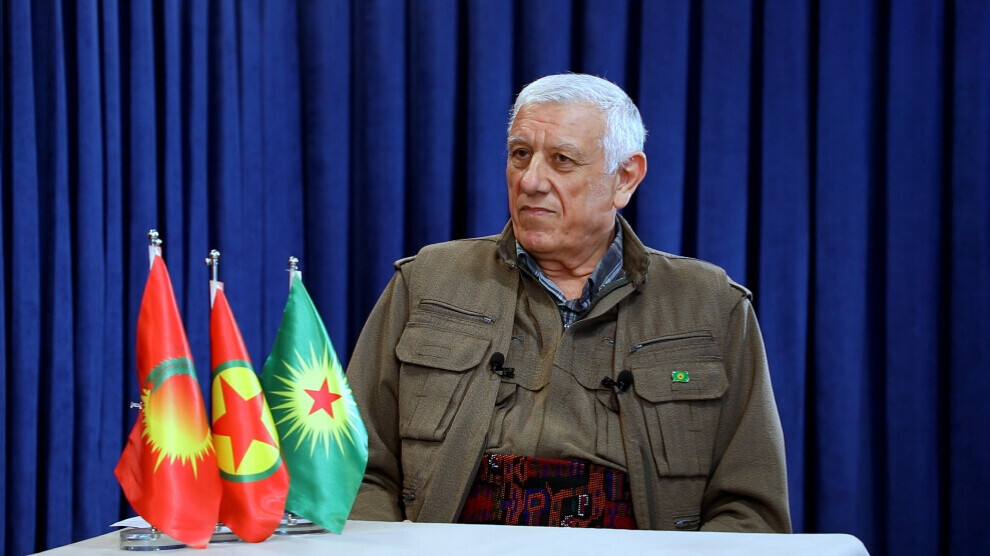
ANF
BEHDINAN
Sunday, 10 November 2024, 07:50
Cemil Bayik, co-president of the KCK Executive Council, comprehensively addressed the issue of how a solution to the Kurdish question can be achieved.
The isolation of peoples leader Abdullah Ocalan had been going on for 43 months. Just recently, a family meeting did take place. In this meeting, peoples leader Abdullah Ocalan pointed out that the isolation still continues. There has been great resistance against this isolation, led by the guerrillas, the Kurdish people, and their international friends. At what stage is the isolation and the resistance against it?
As you pointed out, there had been no meeting with Rêber Apo [Abdullah Öcalan] for almost 4 years. No one knew what his condition and health were like. Now that a meeting took place, we heard from Rêber Apo, and he sent his greetings. This greeting had a very good effect and made everybody very happy. Receiving greetings and news from Rêber Apo after such a long time, of course, created joy in our movement, our people, and our international friends. Before the meeting, rumors were spread about Rêber Apo’s health. They spread this in a conscious way. The Turkish state is conducting politics in Imrali. It is conducting a policy against the Kurdish people, and it does this first and foremost against Rêber Apo. The Turkish state is responsible for whatever happens in Imrali.
Rêber Apo has stated that the isolation still continues. Isolation has not only developed in recent years; the Imrali system has been a system based on isolation and genocide from the very beginning. And this system was not only developed by the Turkish; the ones who are responsible for the international conspiracy developed this system, and today the Turkish state is continuing it. As long as the Imrali system exists, the isolation will continue. When the Imrali system is abolished, the isolation will end. So, the question must be, how is this system to be abolished?
When they accept the Kurdish people as part of society and recognize their natural rights, then both the Imrali system and isolation can be abolished. MP Ömer Öcalan had a meeting with Rêber Apo, but under what conditions did this meeting take place? The meeting was held in an environment in which some circles spread bad rumors about Rêber Apo’s health condition. Both the struggle of the movement and that of the people, as well as that on an international-global level, have built up massive pressure on the Turkish state.
In addition to this, some developments are taking place in the Middle East. When all this came together, they were forced to give a meeting with Rêber Apo. However, even though the meeting took place, the isolation was not lifted. As Rêber Apo stated, the isolation continues. 'They want something from me; if they want me to play my role, then they should create the conditions for it. If the conditions are not created, how can I fulfill my role?' That is what he said. Directly after the meeting with Omer Öcalan, they gave Rêber Apo again a ‘disciplinary punishment’. This punishment is a disguise that they invented to cover for the continuation of the Imrali system and isolation. This is not only the mind of the Turkish state. Those who developed the conspiracy internationally and those who took part in it created this mind in the Turkish state. Because in the past, the Turkish state had put forward some excuses and explained that meetings could not take place. But this created big problems for the Turkish state. So the Turkish state was approached and explained it would not be possible like this. They had to back up their justifications and put them on a legal footing. That’s when they recommended using the ‘disciplinary punishment’ justification. This is how they maintain absolute isolation.
So they made some statements regarding the Kurdish question, and immediately afterward they sentenced Rêber Apo to this punishment. This shows that they have no intention of solving the Kurdish question. If they had any intention of solving it, they would not have given a new punishment to Rêber Apo. They didn’t just sentence him; at the same time, they attacked Rojava and are trying to appoint trustees to the municipalities in Turkey and northern Kurdistan. If their aim was a solution, they would not do such things. They are doing this because the Turkish state is currently in a crisis. Both the ongoing struggle and the developments in the Middle East are creating a crisis in the Turkish state.
They want to get out of it, but they are not clear about how to do so, giving statements without achieving anything. Our people and our international friends need to be aware of this. If the Turkish state was not in such great difficulty, it would not have created such an agenda. What we need to do is break the isolation and ensure the physical freedom of Rêber Apo. The physical freedom of Rêber Apo will lead to the solution of the Kurdish question. There is no other way.
There is going to be a rally in Cologne, Germany, on the 16th of this month for this purpose. That rally is important. A global campaign was developed, and through it, an agenda was created. This campaign has entered its second phase, and that is what the rally is based on. That is why everyone should participate in it. It should be a much bigger rally, not like the old rallies. Millions of people must attend the rallies; millions must march. Only this will ensure the physical freedom of Rêber Apo. Of course, what is being done is good, but it is insufficient.
The Turkish state is talking about Kurds, brotherhood, equality, and many other things because it is forced to do so. More pressure needs to be put on it. That’s why all our people, with their children, women, young and old, should participate in this rally. Kurds should attend this rally not only themselves but also with their friends. Turks, Europeans, socialists, democrats, anyone who wants to be friends with the Kurds should join this rally with them so that the rally will put pressure on the Turkish state and force it to approach the situation in the right way. The Kurdish question can only be solved with the right approach. Now is the time to get Rêber Apo out of Imrali. Everyone must struggle with this consciousness. This is what is asked of everyone.
Erdoğan first traveled to the United States to attend the meeting of the UN and then had a meeting with Bahceli. Later, Bahçeli shook hands with DEM MPs on the opening day of the parliament. What is the meaning of these statements? Is this a new process, a solution, or a project, or what should it be called? What are the factors or issues that have brought the Turkish state to this point? Is it the developments in the Middle East, is it the crisis in the world, or is it their own internal crisis?
No one can name the recent events at the moment. Because talking is one thing, practice is another. If talk and practice do not complement each other, no one can name what is happening. In speeches, everyone can be fooled, but in practice, no matter how much you want to deceive, you cannot succeed. You cannot hide the truth; it will come out. Everyone sees this. Erdoğan and Bahçeli's speeches are one thing, but their practices are quite the opposite. This situation creates a contradiction. What their real intentions are is also clear from their practices. They say that one should understand them on the basis of their speeches and not try to deal with their practice.
No one takes their speeches as a basis; everyone sees what happens in practice. And because of what happens in practice, no one believes their speeches. Therefore, no one can name what has happened recently. A plan is being carried out right now. These speeches and practices are happening within the framework of this plan.
The goal of the Turkish state is to liquidate the freedom movement, complete the Kurdish genocide, carry out neo-Ottoman politics, and strengthen its hegemony in the Middle East. In other words, it follows an imperial policy. That’s why they sent their forces to Libya; they wanted to achieve some results in the Mediterranean, the Caucasus, Syria, and Iraq. They took many steps in this sense. They spent whatever means Turkey had to achieve these goals. But no matter how hard they tried, they could not get the results they wanted. This politics is the cause of the political, economic, social, and cultural crisis in Turkey. They calculated that they would achieve their imperial goals with this politics. That is why they spent all their means.
When they failed to achieve their goals, these crises emerged and put Turkey in great distress. In addition, the so-called Greater Middle East Project is being carried out in the Middle East. It is clear who is running it: America, Britain, and Israel. The war in the Middle East is growing day by day. Changes are taking place in the region, and the Middle East will no longer be the same. Those who run the Greater Middle East Project have openly said that the maps will change. These developments also affect Turkey. The existing nation states are taking blow after blow, and new borders are about to be determined. Turkey is very afraid of this. It wanted everything in the Middle East to be the way it wanted it to be. Because it is a NATO member state and has relations with the EU, it has been getting power from this until now. With this power, it has been committing genocide against the Kurds and other peoples. It is losing this. Because now, even though it is a member of NATO, developments are taking place without the involvement of the Turkish state. It is now excluded from everything.
This danger of losing a lot is what puts the Turkish state in trouble. With the power it received from NATO and the EU, it was committing genocide against all peoples and developing its hegemony in the Middle East; now this is slipping away. And this scares the Turkish government, the capitalists, the army, the state, and the AKP. They had joined hands to become an imperial power in the Middle East, and they believed that they would succeed. But no matter what they did, they could not achieve their main goal.
They have suffered big blows and entered a major crisis. That’s why they are experiencing great fear. In order to cover up this, Erdoğan is talking about Israel being a danger to them, that it would try to invade Turkey in order to destroy it. However, there is no such thing. Everyone knows that Israel will never attack Turkey. Erdoğan makes such propaganda in order to deceive the public and lure them into his politics. He wants to cover up all the problems in Turkey with this rhetoric. There are very serious problems. The people are at the point of an explosion. That’s why he wants to divert everyone. 'Turkey is in danger,' they say. Turkey emerged from the Ottoman Empire under the circumstances of the time, and the republic was founded by force. Today they say that it was once the size of the Ottoman Empire, but the territory was divided up, and today, under the threat of Israel, it is in danger of losing what little it still has. They think that the people will forget their problems and say, 'If the Turkish state is in danger, then let’s protect our state'; this is what they are based on.
This is how they aim to get out of the crisis. Such a policy is being carried out. This policy won’t be successful. The reason why they talk about brotherhood, Islam, and unity and why they say, 'Historically, we have always been together; let’s stand against these dangers together again,' is because of this policy they are pursuing. Why didn’t they say such things in the past? A few months ago they were still saying they would eliminate the PKK and complete the genocide, and they did everything to achieve this. So, what happened to suddenly bring about such a change? The ongoing contradictions and the developments in the Middle East have put the Turkish state in a great crisis. They are afraid that if they don’t get help from the Kurds, they will get lost in the chaos. That is why they are referring to such rhetoric. Once again, they want to fool everyone. They are playing a game, and the games they play are revealed in their practices.
Peoples leader Abdullah Öcalan stated that he has “the theoretical and practical power to move this process from the grounds of conflict and violence to the legal and political grounds if the conditions arise.” As co-presidency of the KCK, you answered to this, that you stand behind him and that he is the interlocutor for the solution of the Kurdish question. But the Turkish state again does not accept him as an interlocutor and continued the isolation and, as you stated, imposed another three-month disciplinary punishment. What is the aim of the Turkish state in doing so?
What Rêber Apo says and what we say are not new things; we have been repeating these things over and over again for years. When Rêber Apo was still in the Mahsum Korkmaz Academy, the journalist Mehmet Ali Birand came and conducted an interview with him. Already at that time, Rêber Apo said that he was looking for an interlocutor to solve the Kurdish question. Until today, this has not changed. Rêber Apo clearly wants to solve the Kurdish question on a political and democratic basis. That is something our movement has also declared many times. Again, our people and our movement have said many times that Rêber Apo is our representative. That it is him who will solve the Kurdish question and negotiate in our name. This has been repeated thousands of times.
The Turkish state knows this very well. Who represents the Kurdish people? Who can solve the Kurdish question – not only the Kurdish question but also the questions of Turkey and the Middle East? Of course it is Rêber Apo. They are aware of this. But they are consciously making some deceiving speeches. In other words, they act as if they want to solve the situation, as if they are trying to do so but failing because they don’t know who they have to deal with. They are trying to say that the Kurds have no interlocutor.
They are very cunning. They are trying to say that the Kurds are not a nation, they are not organized, they are not disciplined, they have no strategy, they are a few tribes, they don’t understand anything, and that, accordingly, an ordered solution with them would be impossible. They are consciously developing these discussions to hide the truth. However, everything is in plain sight. Everyone knows that Rêber Apo represents these people. He has struggled for this for years; that is why he is in Imrali prison. That is why they are imposing absolute isolation on him. In this way, they want to confuse everyone, and underneath they want to realize their goals. When they celebrated the 100th anniversary of the Republic of Turkey in Ahlat, the AKP, MHP, Huda-Par, and a few other party leaders raised their hands together and shared a picture. Then Huda-Par came and had a meeting with Barzani. Erdoğan went to the UN, and Bahceli made some speeches; all of these things complement each other. This shows what kind of plan they are carrying out.
During the Soviet era, socialist movements were strong in Turkey. At that time, state officials declared that if Turkey needed communism, they would bring it to Turkey. This shows the reality of the Turkish state. The Turkish state was never based on society and the people; it is based on itself. The state will do whatever is necessary; for them there is either the state or the people. This shows the logic of the state. Again, after Bahceli and Erdoğan made some statements, someone said, 'The Kurdish problem is not the same as it was before, and the solution will not be the same as it was before.' They are making these statements consciously. In other words, they are saying that they would solve the question in their own way. This is the meaning. For them, there is no PKK, no Rêber Apo, no DEM party, and no Kurds.
What does all this show? They want to create their own Kurds and, like this, show that they have solved the problem with their Kurds. They want to deceive everyone both in Turkey and in the international community in this way. That is why they make such statements. They want to dismember and neutralize whoever is against them so that everyone will be at their service. They are saying this openly. The calls they make are calls to surrender. 'From now on, you will be satisfied with whatever we decide to give you.' This is the essence of their calls. This is the logic of the Turkish state and the AKP-MHP. Whoever opposes this, they say, is a terrorist, a traitor. This is how they talk, and they carry out their practices on this basis.

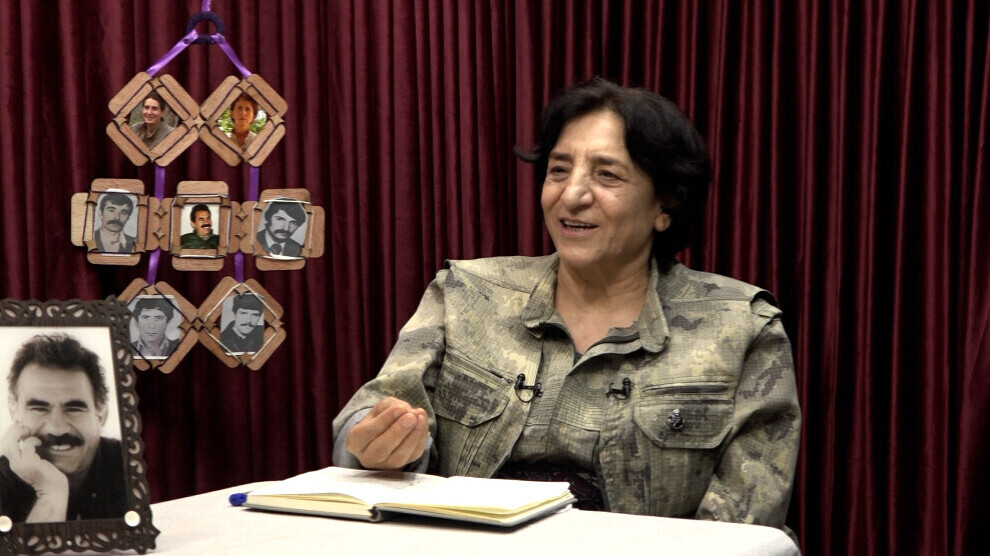
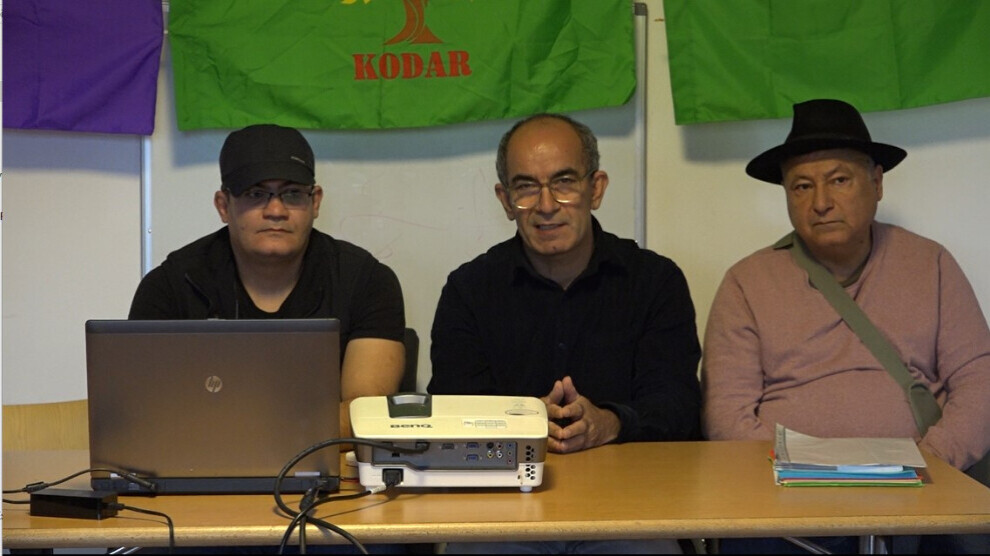
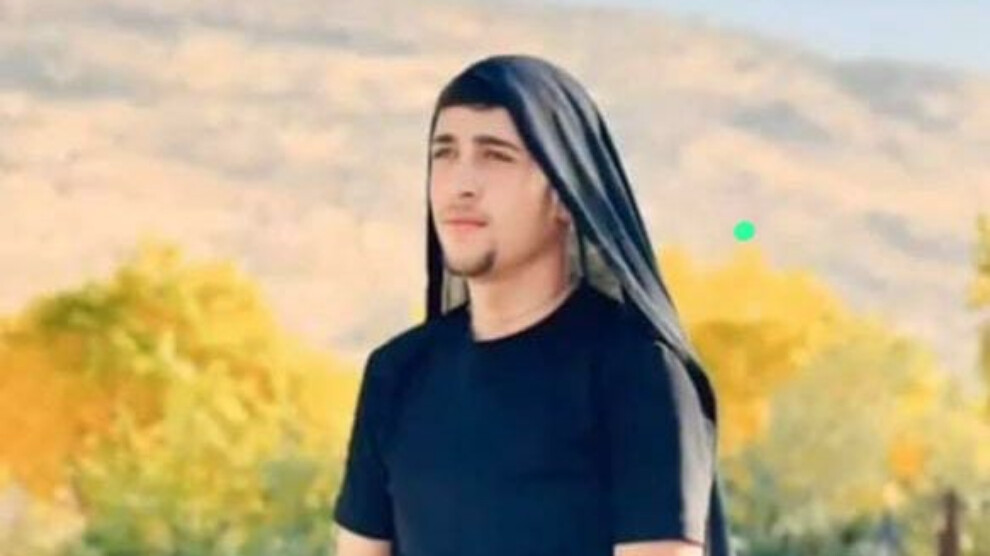
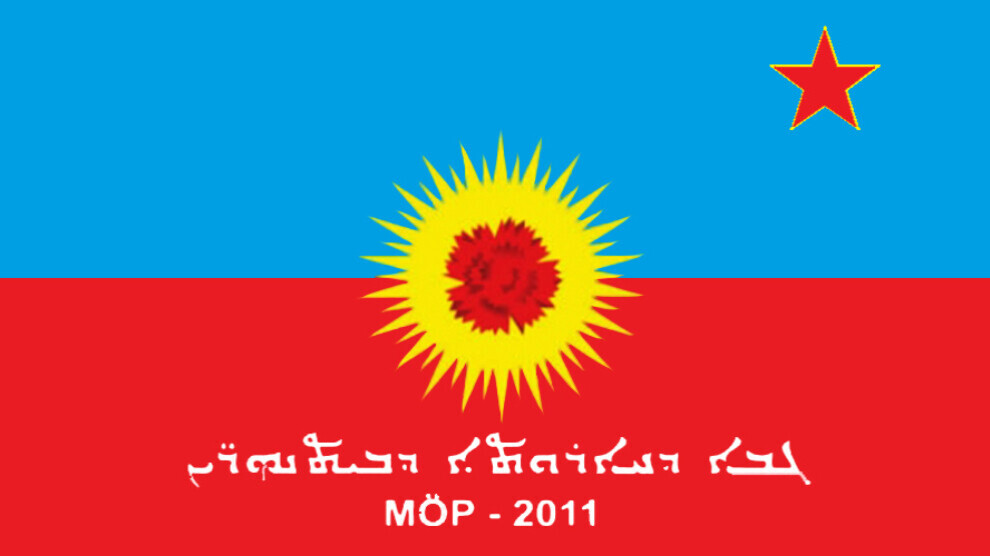
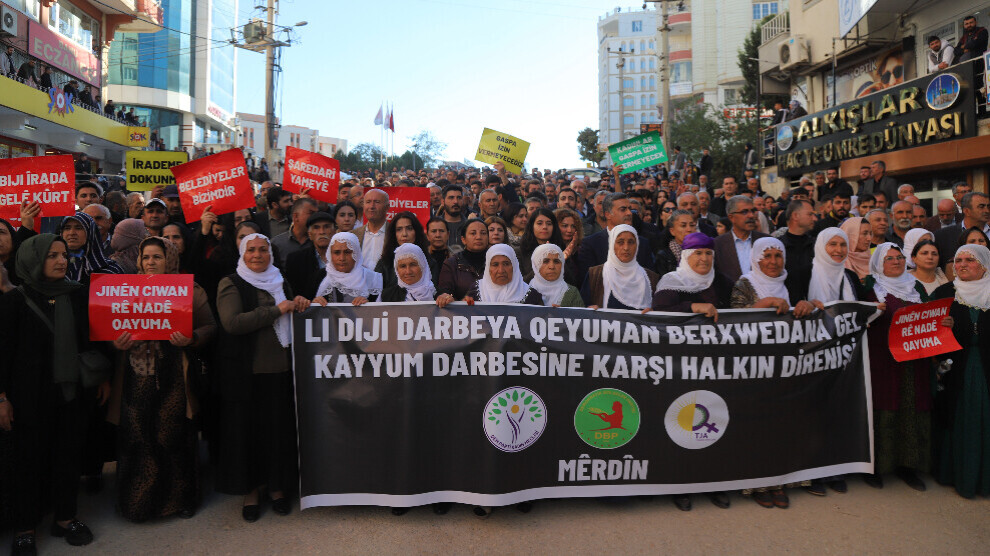






 The New York Times (
The New York Times (
 The Guardian (
The Guardian (